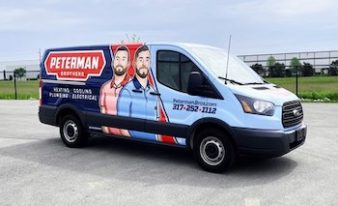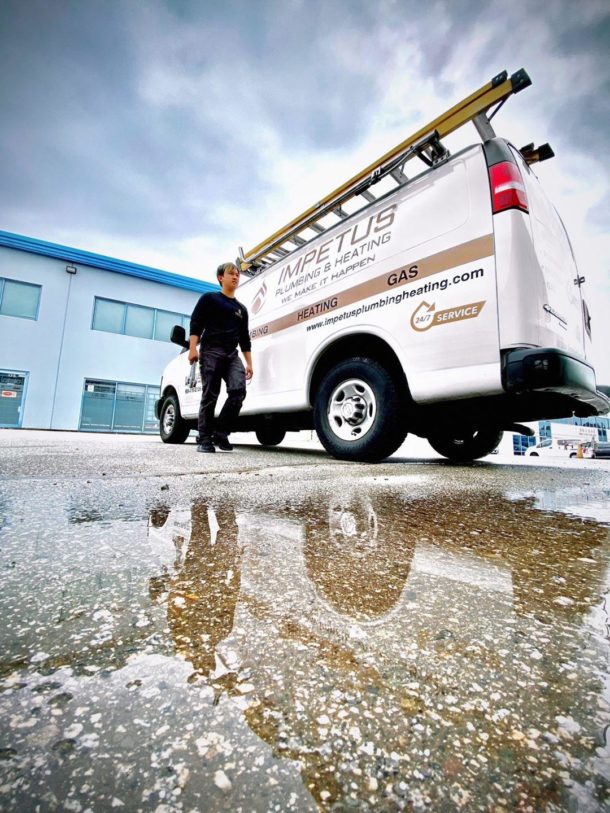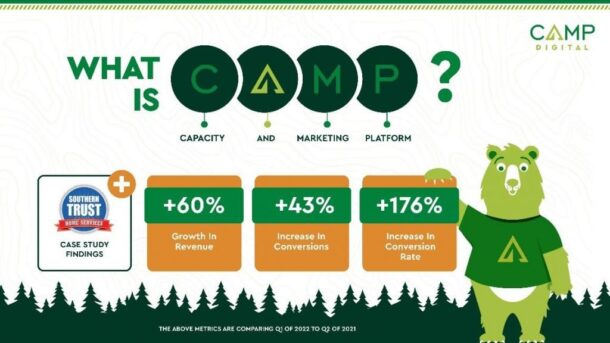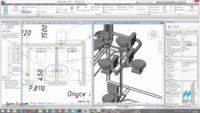The ability for plumbers to quickly move tools and equipment to job sites is one of the primary reasons why small business work trucks play such an important part in the plumbing industry. If plumbers didn’t have access to a dependable vehicle, they’d have to rely on public transportation or their own personal automobiles to Read more
plumbers

The ability for plumbers to quickly move tools and equipment to job sites is one of the primary reasons why small business work trucks play such an important part in the plumbing industry. If plumbers didn’t have access to a dependable vehicle, they’d have to rely on public transportation or their own personal automobiles to get about, both of which are time-consuming and inconvenient options.
The capacity to transport a greater quantity of tools and supplies is one of the most significant benefits that comes with owning a work truck for a small business. When they go to a new job site, plumbers frequently need to bring a variety of tools and supplies with them. These may include pipes, fittings, water heaters, and other items. They are able to load and carry these materials with ease thanks to the use of a work truck, which ensures that they have everything they need to do the task.
 Work vehicles provide plumbers with a feeling of professionalism and trustworthiness, in addition to increasing the amount of equipment that can be transported. When a consumer sees a plumber arrive at their home in a truck that is neatly branded and well-organized, it may instill a sense of trust and confidence in the plumbing company’s abilities. A work truck may also function as a mobile advertisement for a company by having the firm’s logo and contact information displayed on it. This allows potential customers to view the advertisement as they are traveling about town in the work truck.
Work vehicles provide plumbers with a feeling of professionalism and trustworthiness, in addition to increasing the amount of equipment that can be transported. When a consumer sees a plumber arrive at their home in a truck that is neatly branded and well-organized, it may instill a sense of trust and confidence in the plumbing company’s abilities. A work truck may also function as a mobile advertisement for a company by having the firm’s logo and contact information displayed on it. This allows potential customers to view the advertisement as they are traveling about town in the work truck.
The capacity of small company work trucks to safely store tools and equipment is one further advantage offered by these vehicles. When working on plumbing projects, plumbers frequently use high-priced gear and equipment that must be safeguarded against the risk of being stolen or damaged. They are able to secure these goods inside of a work vehicle and keep them out of harm’s way while they are not using them.
Productivity has increased since plumbers are able to swiftly and readily reach the tools and equipment they require while working thanks to the availability of work trucks. This can assist to save time and boost production, both of which can contribute to increased profitability for the company.
A work vehicle enables plumbers to respond to the demands of their customers more rapidly, since they are able to simply transfer the essential tools and equipment to the location of the task. This results in improved customer service. This has the potential to result in greater levels of client satisfaction as well as more recurring business.

Work trucks may also assist to increase safety on the job site, which is another benefit of using them. It is far safer for plumbers not to have to risk harm by carrying heavy goods by hand if they have access to a truck that is specifically designed for the purpose of hauling plumbing supplies and equipment.
Greater flexibility: Plumbers who own their own work trucks have the ability to take on tasks in a variety of places without having to rely on other modes of transportation, such as public transit or their own personal automobiles. This is something that may be very helpful in remote locations, as well as when coping with unforeseen events.
Increased storage capacity: Because work trucks often have more storage room than personal automobiles, plumbers are able to bring a greater quantity of tools and equipment with them to job locations when they use these vehicles. This may prove to be especially helpful for larger, more complicated tasks that need a wide array of specialist equipment.
Options for customization It’s possible to tailor a lot of different work trucks to the particular requirements of a plumbing company. For instance, plumbers might outfit the interior of their van with racks, drawers, and many other storage options to maintain the tools and equipment in an organized fashion and make them conveniently available.
Work trucks may also assist to boost efficiency on the construction site, which is one of its primary benefits. The time spent looking for goods or driving back and forth to acquire them may be cut down significantly for plumbers if they keep all of the required tools and equipment close at hand and easily available. This may assist to enhance production while decreasing the amount of time wasted waiting.
Work vehicles may also give an additional layer of protection for a plumbing company, which is an important consideration. The majority of work trucks include storage compartments that can be locked, which enables plumbers to keep their tools and equipment safe while they are not using them. Theft and damage are two things that may be quite expensive for a small business, and this can help avoid them.
Utilizing a work truck for commercial reasons can also assist in lowering the amount of wear and tear that is placed on a person’s personal car. If a plumber uses their personal vehicle to transport tools and equipment, that plumber’s vehicle may see a greater amount of wear and tear over the course of their career. It is possible for plumbers to make their personal vehicles last longer if they invest in a work truck designed expressly for use in their businesses.

Possible savings on taxes There is a possibility that purchasing a small company work vehicle might save money on taxes. When filing tax returns, a plumbing company might be able to claim a tax deduction for the cost of purchasing a work vehicle, depending on the particulars of the company’s finances. It is always recommended to speak with a tax specialist in order to discover the precise tax ramifications of acquiring a work vehicle. This is because tax laws are complicated and always changing.
Work trucks can contribute to an increase in site organization and make the work environment more efficient. The ability of plumbers to maintain a clean and organized work space, which can contribute to increased levels of efficiency and production, is made possible by the availability of dedicated storage space for tools and equipment.
Increased portability: Plumbers can benefit from increased portability thanks to the availability of work vehicles. Because they are able to readily travel to job sites in a variety of places, plumbers who have access to a work truck may be very beneficial to plumbing companies that serve a vast service area.
Work trucks may also be a cost-effective choice for plumbers, making them a good alternative to consider. It is possible that using a work truck rather than hiring a van or truck for certain task locations will be more cost-effective overall in some circumstances. Using a work truck instead of a personal vehicle may also be more cost-effective in the long run due to the fact that work trucks are purpose-built to transport tools and equipment and have a lesser potential for requiring costly repairs and maintenance over time.
Opportunities for custom branding: A plumbing company’s work vehicles may also be used as a tool for marketing the company’s services. The ability to brand one’s own work truck with one’s firm logo and contact information is one way that tradespeople, such as plumbers, may raise their profile in the community and bring in new clients.
To summarize, work trucks for small businesses are an important component of the plumbing sector. They enable plumbers to move tools and equipment to job locations quickly and effectively, present an air of professionalism, and store tools and equipment safely. It may eventually save plumbers time and money, in addition to assisting them in growing their business, if they make the investment in a dependable work truck.

CMM Platform Driving Increased Revenues for Home Service Brands, Double Revenue at Camp Digital Annually Founded just four years ago in the expansive Home Services category valued at over $650 billion, the women-led Twin Cities-based digital marketing company formerly known as Home and Local Services has rebranded as “CAMP Digital.” The official announcement was made Read more
CMM Platform Driving Increased Revenues for Home Service Brands, Double Revenue at Camp Digital Annually
Founded just four years ago in the expansive Home Services category valued at over $650 billion, the women-led Twin Cities-based digital marketing company formerly known as Home and Local Services has rebranded as “CAMP Digital.” The official announcement was made in Austin, Texas, at a special event hosted by CAMP Digital during the annual Super Meeting of the Nextstar Network. Last week, CAMP Digital also announced its expansion to the West coast after a new office recently opened in Portland.
The rebrand reflects how the fast-growth company is changing the way HVAC technicians, plumbers and electricians, roofers and others do business by offering them its proprietary software tools and process to better manage their marketing messages, ad spend online and service capacity more effectively and economically – in real time.
CAMP Digital offers its customers a Capacity Managed Marketing (CMM) platform, driven by its proven Capacity Protocol Optimization (CPOP) software, which gives companies a strategic edge in managing their marketing dollars and workflow. The innovative and disruptive B2B technology is heating up revenues for many North American brands/customers and experiencing its own electrifying growth.
Revenue has doubled every year since its inception by twin sisters and serial entrepreneurs, CEO Katie Donovan (nee Stapleton), COO Meg Stapleton and Chief Strategic Officer, and fellow co-founder Thom Johnson, a veteran marketing guru and the creator of CAMP Digital’s CMM platform. CAMP Digital’s CMM expertise also has made it a coveted Google Premier Partner, based in part on CAMP’s $70 million annual ad spend and its outstanding performance in home services. It was recently named to Inc. magazine’s “Inc 5000” for 2022 – placing at position 365 in its first year of eligibility.

“The dedicated customers we work with daily like Southern Trust Home Services, a family run and operated Plumbing, Electrical and HVAC business in Roanoke, VA., understand how CAMP Digital can positively impact their business,” notes Donovan. “We helped Increase their average customer tickets with better leads and overall lead volume/conversions to 43.72%. Most importantly, we helped them maximize the return on ad spend: Overall conversions across the entire account yielded an amazing increase of 176.98%! – and resulted in a 60.19% increase in revenue to the business for Q1 of 2022 vs Q1 of the previous year.”
“Our new name readily reflects who we are and what we can do to streamline our customers digital marketing investments and maximize their ROI,” adds Meg Stapleton. “CAMP communicates directly with our advertising engine to dynamically distribute compelling offers through digital channels that align with their current business needs in real time. This is particularly important in the industry we support, since home services is a very low interest, high intent category. The average consumer is in the market for less than 72 hours and expects / requires resolution quickly. So, when our customers like Southern Trust and others widely succeed, we do too.”
“Home Service companies everywhere live and die by calls coming into their call centers. But how consumers find them – and how fast service providers can respond – often determine whose trucks are on the road to revenue versus those idling on the street,” notes Johnson. “Our Capacity Managed Marketing (CMM) bundles dynamic lead generation, scalable website creation and marketing messaging. And it allows service providers to minimize ad spend, in a strategic package –hence the name CAMP — Capacity And Marketing Platform.”
“CMM simply delivers HVAC technicians, plumbers and electricians, roofers and others the flexibility to price higher – when demand is high – and to price lower when demand is down – in real time. The system also helps better control ad spend: If a company is at capacity, spending is dialed back, saving decision-makers money, time, and reputation.”

More builders and architects are building sustainability into their practice and conducting water efficiency planning including water-saving solutions and installation of water-saving measures, analyses of costs and uses of water, specification of water-saving solutions; installation of water-saving measures. As a result, Niagara recently launched a new CEU course for builders, architects, engineers, plumbing engineers and Read more
More builders and architects are building sustainability into their practice and conducting water efficiency planning including water-saving solutions and installation of water-saving measures, analyses of costs and uses of water, specification of water-saving solutions; installation of water-saving measures.
As a result, Niagara recently launched a new CEU course for builders, architects, engineers, plumbing engineers and plumbers that addresses water conservation standards, ways to reduce water consumption and green building benefits.
The Benefits of Implementing Water Conservation Standards by Building Beyond Code. Niagara just launched a new CEU course on Water Conservation for building owners and builders, architects and engineers. A team of experts at Niagara pooled their resources together with AIA and created a course that qualifies for 1.00 LU/HSW hours called The Benefits of Implementing Water Conservation Standards by Building Beyond Code. The course is delivered via webinar through AEC Daily.
The planet is currently in a water scarcity crisis, and toilet water usage can have a significant impact on improving this crisis. This course examines the current plumbing codes, standards, and regulations that address toilet water usage. It also details the need for, and the benefits of, going beyond current standards as well as the goals of a variety of beyond the code voluntary standards and rating systems. It explains the various types of low and ultra low flow toilets, their pros and cons, and their selection criteria. It concludes with a sampling of successful cost and water saving installations. Upon completion of this course, participants will be able to:
- Significantly reduce water consumption and costs by using low and ultra low flow toilets
- Capitalize on green building benefits by lowering water consumption with ultra high efficiency toilets (UHETs)
- Inform developers on financial incentives related to water conservation for affordable housing programs, and
- Optimize the benefits available from exceeding current code and standard water consumption requirements.
BIM object: In addition to the above course, Niagara recently teamed up with BIM Object, a company who offers rivet files to architects and engineers for specifying projects, to make specifying their fixtures even simpler. Engineers, contractors and architects can access files for all of Niagara’s Pro models to utilize their industry-leading warranties, earn LEED points, and merit lower tap or impact fees when specing out their next property
For more information on Niagara please visit niagaracorp.com.
MADISON, Wis. In a new study conducted by Wisconsin Safety Council (WSC) and Rural Mutual Insurance Company, 85% of respondents said they “sometimes” or “often” see a coworker come to work sick even though he/she should have stayed home. In the current environment, exposure to sick coworkers is the leading safety concern for workers in Read more
MADISON, Wis. In a new study conducted by Wisconsin Safety Council (WSC) and Rural Mutual Insurance Company, 85% of respondents said they “sometimes” or “often” see a coworker come to work sick even though he/she should have stayed home. In the current environment, exposure to sick coworkers is the leading safety concern for workers in Wisconsin.

In an effort to identify top workplace safety concerns and provide solutions during National Safety Month in June, WSC and Rural Mutual polled more than 180 WSC members, the majority of whom are safety professionals working in Wisconsin trades, including contractors, manufacturers and construction workers. The study was completed in April.
“Amidst the COVID-19 pandemic, we know businesses and organizations across the state are looking to create safer work environments now more than ever,” said Aaron Huebner, WSC executive director. “This study revealed safety professionals should focus on establishing initiatives that prevent the spread of infection and reduce exposure to employees who are sick.”
The respondents indicated several other top safety risks in the workplace:
- Interacting with hazardous materials (80%)
- Driving for work-related activities (80%)
- Standing for more than two hours in a row (79%)
- Working in high noise levels where a raised voice is needed to talk to people less than four feet away (76%)
A new, free e-book from Rural Mutual and WSC is now available to help safety professionals and trade workers in Wisconsin address these leading safety concerns. The ‘Work Safe in Wisconsin’ e-book offers easy to implement solutions for a safer and healthier workplace.
“Helping Wisconsin businesses lower their safety risks is a big part of Rural’s mission,” said Chris Schlechta, safety and loss control manager at Rural Mutual. “We’re excited to work with WSC to introduce the ‘Work Safe in Wisconsin’ e-book in hopes to inspire workers to jumpstart safety initiatives during National Safety Month and throughout the year.”
The e-book includes tips for those looking to create a safer workplace, including:
- Foster a safety culture. Ensure all employees feel comfortable reporting a safety concern when they see it. See something, say something, do something.
- Give employees a voice at the table. Before implementing a new safety initiative or when elevating existing safety programs, engage the frontlines and ask employees for their feedback.
- Adopt a proactive, not reactive approach. If we wait until an accident happens to address a safety concern, we will never get ahead of the issue.
To download a free copy of the e-book, visit www.ruralmutual.com/insurance/business/work-safe/.
Washington, D.C. — The U.S. Department of Homeland Security Cybersecurity and Infrastructure Security Agency (CISA) has updated its “Essential Critical Infrastructure Workforce” advisory list to more accurately define the plumbing and mechanical industry, a list that now includes language for which IAPMO advocated. ”Workers who support the supply chain of building materials from production through Read more
Washington, D.C. — The U.S. Department of Homeland Security Cybersecurity and Infrastructure Security Agency (CISA) has updated its “Essential Critical Infrastructure Workforce” advisory list to more accurately define the plumbing and mechanical industry, a list that now includes language for which IAPMO advocated.
”Workers who support the supply chain of building materials from production through application/installation, including cabinetry, fixtures, doors, cement, hardware, plumbing, electrical, heating/cooling, refrigeration, appliances, paint/coatings, and employees who provide services that enable repair materials and equipment for essential functions” have been added to the list, which may be read at: https://www.iapmo.org/media/23610/dhs_critical_workforce_20.pdf.
Workers such as builders, contractors, HVAC technicians and landscapers were added to the Public Works sector heading, which was changed to “Public Works and Infrastructure Support Services,” and the list has been expanded to include “… workers at distribution facilities, workers who transport basic raw chemical materials to the producers of industrial and consumer goods, including hand sanitizers, food and food additives, pharmaceuticals, paintings and coatings, textiles, building materials, plumbing, electrical, and paper products.”
IAPMO recently published a guidance for plumbing professionals working under the threat of COVID-19 authored by Peter DeMarco, Executive Vice President of Advocacy and Research for The IAPMO Group. That white paper may be viewed at https://www.iapmo.org/media/23453/coronavirus_guidance_for_plumbers.pdf.
“This is big news not only for IAPMO, but the entire plumbing and mechanical industry,” IAPMO CEO GP Russ Chaney said. “By explicitly citing the entire supply chain for plumbing products as essential, the federal government has clarified how important each facet of the industry is, from manufacturer to distributor to plumber.”
